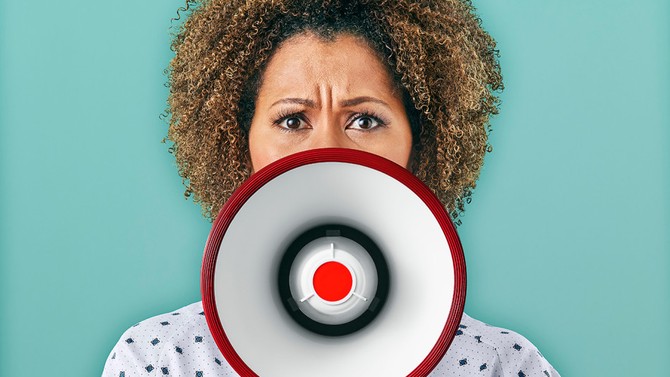We Asked a Doctor How to Talk So That They'll Listen
How to get your medical provider's attention so you can receive the best possible care.
By Lisa Haney
A meaningful chat with your physician could save your life—or at least help lengthen it. Even in this age of advanced scanning technology, your ability to clearly describe your health problems—and help your doctor understand them— is critical to getting an accurate diagnosis, says Danielle Ofri, MD, PhD, an associate professor of medicine at NYU School of Medicine and author of What Patients Say, What Doctors Hear. "Good communication with your doctor is the single most important medical tool you have to get and stay healthy," Ofri says. In fact, research shows provider-patient conversation is so powerful, it can even numb pain: In one 2014 study, patients receiving a sham treatment for chronic back pain reported a nearly 55 percent decrease in their discomfort when their physical therapist listened actively, showed empathy and warmth, and offered encouragement.
But too often, doctors take a more hurried approach in the name of efficiency: Ofri cites a study that found that doctors typically interrupted their patients 12 seconds after they started talking. Yet according to other research, the average person takes a mere 92 seconds to sum up why they're in the office. "Doctors need to stop talking, turn away from the computer, and give patients one to two minutes of full-frontal listening," Ofri says. "If yours isn't doing that, don't be afraid to speak up." How to assert yourself when you're sitting on a table in a paper gown? We asked Ofri, who's also an attending physician at Bellevue Hospital in New York City, for her best Rx.
O: What's the most tactful way to let my doctor know I still had more to say when he interrupted me?
Danielle Ofri: A gentle reminder can actually be very helpful for us. If a patient says, "Do you mind if I just finish what I was saying?" I usually respond with something like, "Sure. Oh, wow, I shouldn't have cut you off."
O: How much information should I give the doctor?
DO: Before your visit, choose two or three concerns you want to discuss. If you have more, write them all down and show them to your doctor at the beginning of the appointment so you can decide together what's most important to discuss today and what may need to wait until next time. Try to cover the bases without getting bogged down in unnecessary details, which can waste time.
But too often, doctors take a more hurried approach in the name of efficiency: Ofri cites a study that found that doctors typically interrupted their patients 12 seconds after they started talking. Yet according to other research, the average person takes a mere 92 seconds to sum up why they're in the office. "Doctors need to stop talking, turn away from the computer, and give patients one to two minutes of full-frontal listening," Ofri says. "If yours isn't doing that, don't be afraid to speak up." How to assert yourself when you're sitting on a table in a paper gown? We asked Ofri, who's also an attending physician at Bellevue Hospital in New York City, for her best Rx.
O: What's the most tactful way to let my doctor know I still had more to say when he interrupted me?
Danielle Ofri: A gentle reminder can actually be very helpful for us. If a patient says, "Do you mind if I just finish what I was saying?" I usually respond with something like, "Sure. Oh, wow, I shouldn't have cut you off."
O: How much information should I give the doctor?
DO: Before your visit, choose two or three concerns you want to discuss. If you have more, write them all down and show them to your doctor at the beginning of the appointment so you can decide together what's most important to discuss today and what may need to wait until next time. Try to cover the bases without getting bogged down in unnecessary details, which can waste time.
From the September 2017 issue of O, The Oprah Magazine


